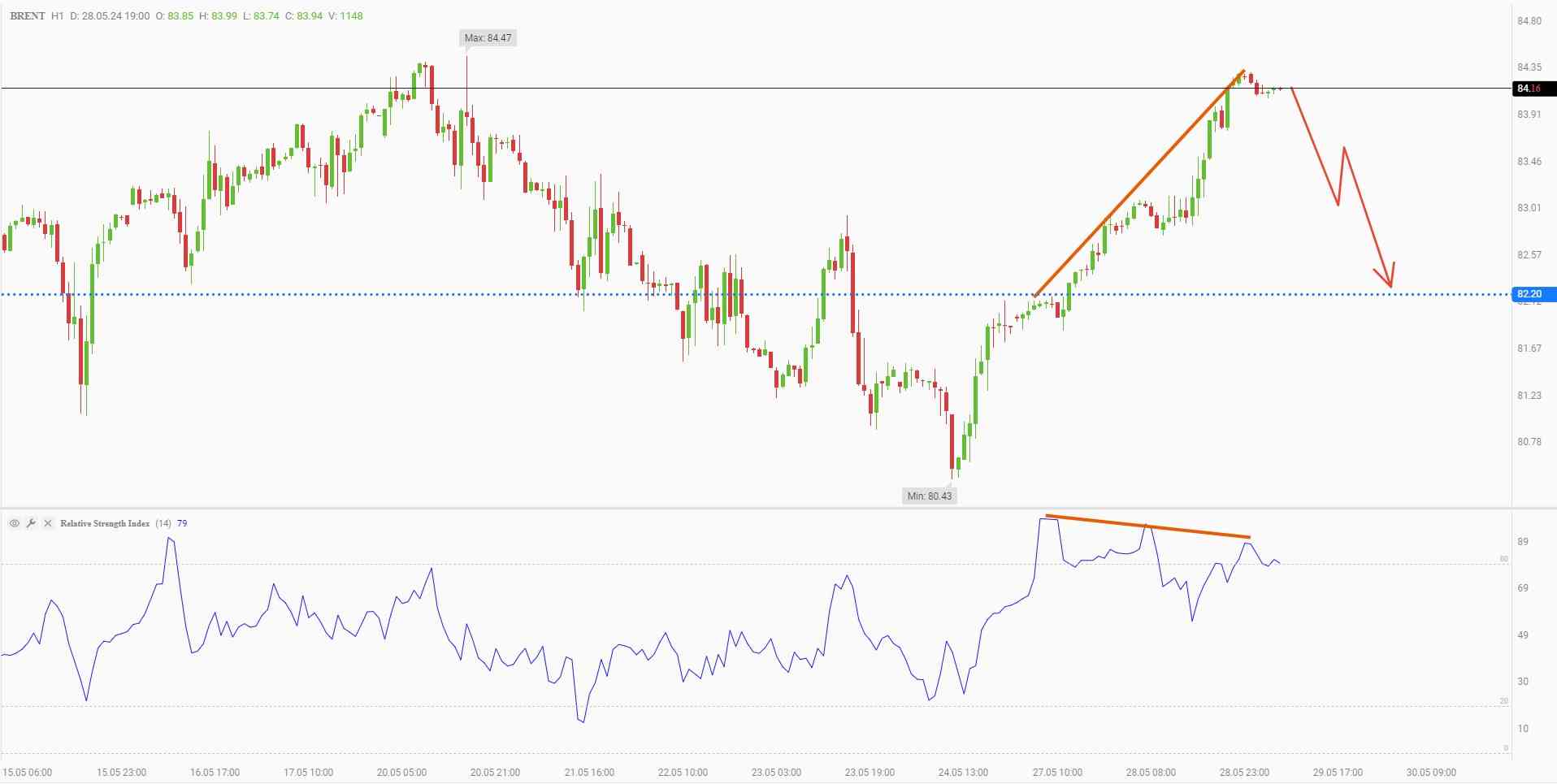Selling Brent with the target at $82.2 per barrel

Ahead of the OPEC+ meeting, where the group's members are likely to agree to extend production cuts by about 2 million barrels per day, let's take a look at the global oil market conditions.
Chinese oil refiners are cutting processing rates as a housing crash crimp demand for plastics and fuels used in construction. China is reining in crude purchases from Saudi Arabia and Russia. A downturn in Asia’s biggest importer could derail the efforts of OPEC+.
After faster-than expected economic growth in the first quarter, China’s strong start to 2024 soon began to fade, illustrating the challenges facing the Chinese economy.
The producer price index — one gauge of factory strength — has remained negative for 19 months. An 11-month consecutive plunge in home sales has crimped consumption of plastics and weakened petrochemical product margins.
It’s also limited demand for diesel used in outdoor construction, and as a transport fuel to ship industrial materials. According to one metric, Chinese apparent consumption of oil products fell year-on-year in April for the first time since December 2022.
Refining rates fell to 14.36 million barrels per day in April, the slowest pace since December and 4% lower than at the same time last year, according to Bloomberg calculations based on government data.
Meanwhile, major state-run plants are reluctant to revive operations after returning from seasonal maintenance. Throughput at Chinese refineries will rise by less than 100,000 barrels per day this year, the weakest increase in at least two decades, the company estimates.
There’s been a visible impact in oil flows to China. The number of supertankers headed to China fell to the lowest in seven weeks, according to the most recent data compiled by Bloomberg.
Still, OPEC+ officials privately remain confident about oil demand in China and other parts of Asia. According to the International Energy Agency in Paris, Chinese oil consumption is on track to increase by 510,000 barrels per day this year — accounting for about half the global total — to 17 million barrels per day, and expand further in 2025.
In other parts of Asia, a sharp drop in returns from making diesel is prompting some refiners to make modest reductions in operating rates.
From West African producers Nigeria to Azerbaijan and Kazakhstan, several OPEC+ exporters have struggled to sell cargoes at their usual speed amid competition from US exports, causing prices to weaken. A rebound in flows from the US Gulf to Europe has put pressure on key North Sea and Mediterranean markets.
In the US — still the world’s biggest oil consumer — crude inventories at the storage hub in Cushing, Oklahoma, are at the highest levels since July.
Gasoline demand in the US, while set for a boost when Americans take to the roads for vacations this summer, remains below the same period last year.
From a technical point of view, Brent oil is in the overbought zone, in addition, a bearish divergence of the price with the RSI indicator has been formed.
The final recommendation is to sell Brent. The profit could be fixed at the level of 82.2. The Stop-loss — at the level of 85.2.
It’s suggested to limit the trading volume to no more than 2% of your deposit funds.
Other forecasts
Surging AUDCAD confirms advantage of bulls
08.11.2024Brent oil prices may decline in short-term under global changes
07.11.2024USDJPY maintains uptrend with the nearest target at 156.80
06.11.2024US election results send EURUSD to summer lows
06.11.2024Strong dollar supports USDCAD growth amid soft monetary policy of the Bank of Canada
05.11.2024GBPUSD rebounds towards the level of 1.304
Trade with a reliable broker
Compensation for refills, personal discounts, increased number of bonus points
Open an account
